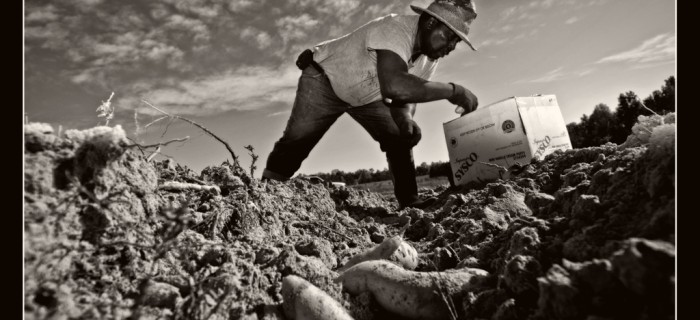
Black Farmers in Texas Part II
by Benjamin Brown

When the guns of the American Civil War fell silent in May of 1865, a precarious peace settled over the United States. Ruined plantations littered the South. Millions of emancipated slaves were suddenly under federal protection. Abraham Lincoln’s party took the White House under a philosophy which celebrated the sanctity of free, dignified labor, and the forceful destruction of the “peculiar institution” demanded integrating the moribund plantation system into a “free soil” economy. Congress, under the leadership of Radical Republicans, passed the “Homestead Acts,” which, while crafted to aid the South more broadly, placed particular emphasis on bringing black Americans to the economic fore. The Acts were imperfect, and systemic racism often frustrated their implementation, but they opened millions of acres to America’s new black citizenry. By the early 20th century, approximately 14 percent of U.S. farms had black owners.
Dr. Al Parks of Prairie View A&M explained to PHIT how the expansion of black agriculture was subject to many hurdles. His father benefitted from the Homestead Act, but with an unfortunate caveat: “With the Homestead Act … you get 160 acres. Somehow, when it got down to blacks, it got down to 40. That’s the way it was. … I used to ask my dad, ‘How did you end up with 40?’” He later discussed how systemic racism formed only part of the picture. Many black farmers acquired their lands irregularly, whether through military directives dismantling plantations or through federal programs.

Bureaucratic racism imbued black farmers with skepticism towards the government, rendering them apprehensive to seek help. Parks shared an anecdote involving his grandfather, who sought a small loan: “I explained, ‘They want you to mortgage your land.’ He said, ‘Oh, no. I’m not going to mortgage my land.’ He went on to tell me stories about people he’d known. They didn’t trust the government, because you might mortgage the land, and if you can’t pay the loan back, you default on the loan. They did not trust the government.” Activist Cather Woods shared a similar story about how many black farmers were hesitant to approach nongovernmental agriculture organizations: “You had a lot of farmers, even the landowners, that didn’t trust even the Landowners of Texas, or Small Farmers and Ranches, or 100 Ranches, because their parents had had bad experiences with USDA. … It was hard to get any of them to even [take] the census. It was very hard to get even people that I went to church with to let me sign them up. Black farmers would say, ‘No, no, no! They’ll take my land. I don’t fool with them.’”
The bitter memory of slavery drove new generations of African Americans towards the cities. In her interview with us, civil rights activist Barbara Lange put it in the following words: “African Americans have been brought into urban areas. The last thing they wanted to know was how they planted corn, because farming had to do with walking in the mud, with no shoes on and the mud coming up through your toes. In other words, it was not a good thing. We were so busy becoming urbanized and experiencing what could be interpreted as a free person of color. Anything that smacks of dealing with the slavery concept and that whole syndrome, we had nothing to do with that.” She recalls a conversation with a black senior citizen, who said the following when told about Southern farming cooperatives: “No, I did that up in East Texas. I’m sure not going to do any farming. You are telling us to go back and do that again? I grew up picking cotton and all that kind of bad stuff.”
Lange expressed her frustration at the frequency with which “African American land [wound] up on the courthouse steps.” Apathy, combined with unclear family legacies, meant that wills and other documents were often lost to time. When USDA came knocking on doors to investigate potential foreclosure or inheritance issues, African Americans frequently lacked the interest or resources to mount legal battles. Whereas America entered the 1920s with nearly a million black-owned farms constituting 14% of its agricultural base, modern black farms number roughly 50,000, representing less than 2% of the U.S. farming
Ben Brown